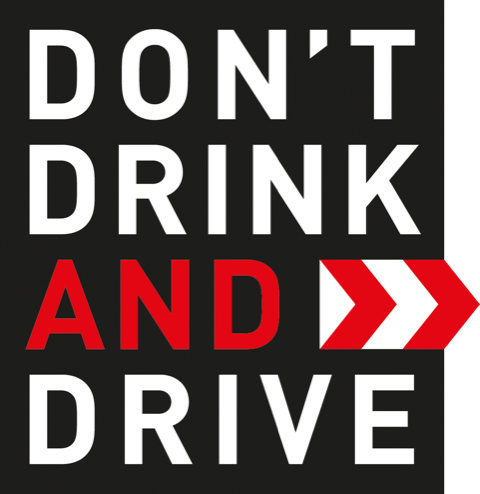Social responsibility

The business community is demonstrating a high degree of responsibility in marketing its alcohol products. Studies and national drug reports consistently show positive results in reducing harmful alcohol consumption over the past decade. This relates to binge drinking, underage drinking, drinking and driving, and mortality and morbidity associated with harmful alcohol consumption, and underscores that targeted prevention measures and legislation, combined with the proactive engagement of industry stakeholders, are paying off. The wine industry, in particular, has demonstrated specific expertise in effectively addressing harmful alcohol consumption. In addition to awareness campaigns, tools to educate consumers with transparent information on ingredients and nutritional values in products containing alcohol are an integral part of wine-specific measures.
The industry is firmly committed to continuing to help reduce abusive alcohol consumption and promote moderate sparkling wine and wine consumption exclusively as part of a healthy lifestyle.
Advertising creates added value for society and the economy and is an important part of democratic opinion-forming. With regard to alcohol advertising, Germany prescribes clear legal regulation. Over and above the legal requirements, the German alcohol industry has for decades assumed its responsibility for the presentation and advertising of its products within the framework of self-regulation and is guided by the "Rules of Conduct of the German Advertising Council on Commercial Communication for Alcoholic Beverages".
This set of rules was adopted as early as 1976 under the umbrella of the Central Association of the German Advertising Industry (ZAW). The extension of this regulation, created in 2009, protects children and young people in particular. Commercial communication may not show children and young people drinking or being encouraged to drink, nor may it be an incitement to consume alcoholic beverages. Nor may design elements with a youth appeal be used to address children and adolescents. The manufacturers of alcoholic beverages must set up an age barrier in their online presentations.
In principle, it is not permitted to visualize or trivialize abusive alcohol consumption. An advertisement also violates the German Advertising Council's rules of conduct on commercial communication for alcoholic beverages if it conveys a message that blames excessive alcohol consumption for overcoming problems, achieving a special feat or social success.
By respecting these rules of conduct, German sparkling wine producers acknowledge their obligation to design commercial communications for their products in a responsible manner. Advertising for alcoholic beverages in this way meets the required standards.
The evaluation and effectiveness of advertising self-regulation in Germany is the responsibility of an independent body, the German Advertising Council. The few, insignificant complaints made by the Advertising Council over the years show that the industry's self-regulation mechanism is working successfully.
In the opinion of the German sparkling wine producers, more extensive advertising restrictions for alcoholic beverages, which have been called for from time to time, fail to achieve the desired goal of reducing abusive alcohol consumption. Examples from Scandinavian countries show that banning advertising from digital and printed media neither leads to a decrease in consumption nor contributes to a different consumption behavior. According to the Drug Report of the Federal Government Commissioner for Addiction and Drug Issues, alcohol consumption by Germans has been declining for years, which underscores that voluntary commitment by the industry works better than restrictions.
The sale of products containing alcohol is clearly regulated by law in Germany (see Alcohol and the Protection of Minors). Nevertheless, politicians are calling for measures to further restrict the availability of alcoholic beverages. So far, there is no scientific evidence for the effectiveness of sales restrictions in terms of abuse reduction. Bans and restrictions on the availability of alcoholic beverages therefore miss the target of abuse reduction and burden consumers who consume alcohol in moderation. Examples from Scandinavian countries show that regulated procurement of alcoholic beverages is circumvented and harmful consumption patterns persist despite restricted availability. Those who want to consume alcoholic beverages for moments of intoxication and addiction find their way, buying in bulk or over the Internet. The problem shifts to the private sphere without social control.
It is important to create a controlled environment to combat alcohol abuse, in which existing regulations and laws are strictly observed. Parallel to this, it is advisable to learn how to handle alcoholic beverages responsibly as a young adult, so that prohibitions do not exert an attraction.
On the surface, the political model of taxing alcoholic beverages may seem attractive. In addition to fiscal reasons, the health policy argument of the steering effect is often put into the balance. According to this argument, higher taxes on alcoholic products would lead to less consumption and less damage to health. Such an increase in the price of alcoholic beverages within the EU leads to distortions of competition and evasive movements in the market and even creates incentives for the trade in alcoholic products on the black market to appear interesting and for the illegally traded goods not to be recorded for tax purposes. Price increases are therefore not suitable to combat abusive alcohol consumption causally. Instead, they burden those who consume alcohol moderately and responsibly. To date, there is no empirical evidence for the effectiveness of taxation as a health policy instrument.
Tax increases alone have not yet made anyone healthy. The Verband Deutscher Sektkellereien e.V. (Association of German Sparkling Wineries) would like to see honest political competition for the right measures and advocates making a clear distinction between enjoyment and abuse in the case of alcoholic beverages. Prevention and responsible action remain central building blocks for reducing harmful alcohol consumption. This applies equally to consumers and manufacturers. With the "Wine in Moderation" and "DON'T DRINK AND DRIVE" campaigns, industry players are taking the initiative in making a significant contribution to consumer education and personal responsibility. The effectiveness of these measures can be seen in statistical surveys.

 Deutsch
Deutsch
 English
English





